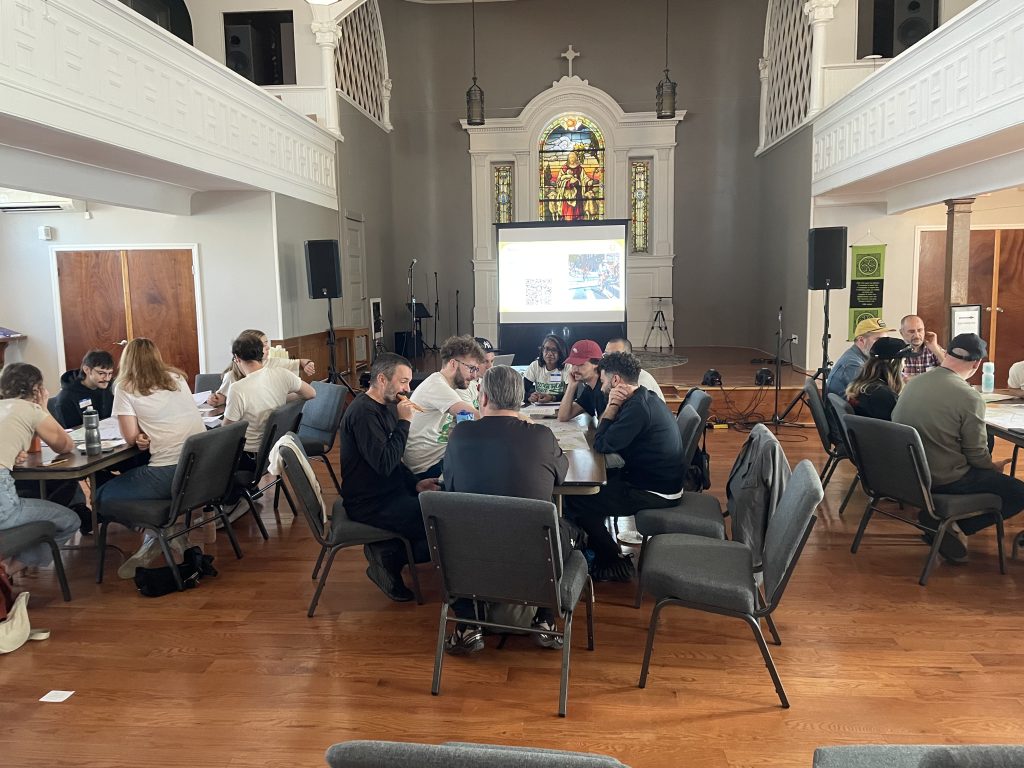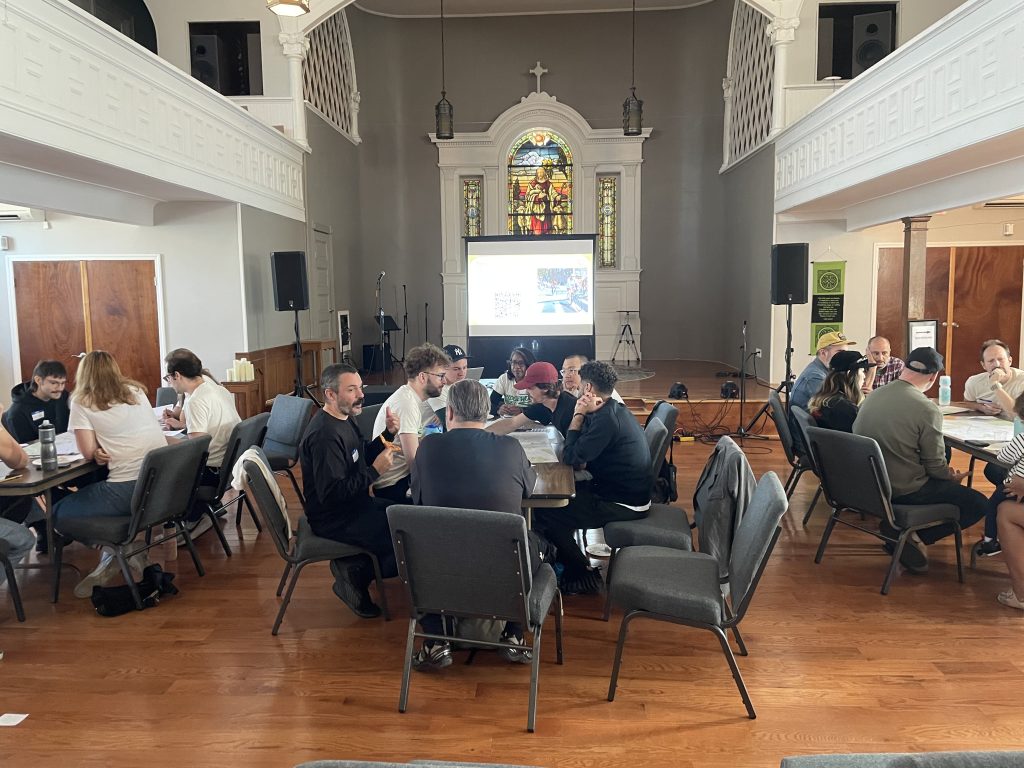
By: Zachary Weg
Ridgewood Rides gathered at Ridgewood Presbyterian Church to discuss not only their recent bike rides but also ways of improving cycling and pedestrian infrastructure in Ridgewood and the surrounding area.
Founded in June 2022 by a few Ridgewood cycling enthusiasts, Ridgewood Rides has grown to hundreds of riders and even has over twenty-thousand followers on Instagram. But popularity is only a byproduct of the group’s passion for cycling.
“We have two missions,” says Bree Mobley, an organizer/volunteer for Ridgewood Rides. “One is to organize a bike community in the neighborhood and bring people together, and the second is to advocate for safer and better bicycle and pedestrian infrastructure in the neighborhood. It’s being a community group for cyclists in the neighborhood to connect and then basically to push the city and elected officials to make our streets safer for the most vulnerable users of the street: pedestrians and cyclists.”
The group’s goals are particularly relevant as, unlike certain parts of other neighborhoods in Queens, much of Ridgewood is congested and often logjammed with traffic. A walk by Myrtle Avenue, for instance, reveals as many as ten cars all trying to make the light and leaving little room for cyclists to ride parallel to them. As one young member of Ridgewood Rides puts it simply, Myrtle Avenue and Metropolitan Avenue are both “bad” for riders. Seneca, Cypress, and Wyckoff Avenues, similarly, are in need of “more biking infrastructure,” as other members agree.

Still, Ridgewood Rides organizes a ride every week, often cycling throughout the city but always starting and ending in Ridgewood. Frequently communal and joyful, the rides have even included pit stops at such popular sites as the Queens Night Market and several others.
Yet the collective has faced challenges, as well. “Since we started, Citi Bike has expanded into the neighborhood,” Mobley says, adding, “When we first got together, we were getting held up by elected officials, and just other people in the neighborhood, primarily drivers, were feeling threatened that some of their parking spots were being taken away. But we collectively pushed to have the expansion, be on time and come to the neighborhood.”
Besides the Citi Bike expansion, another main effort to improve Ridgewood’s cycling infrastructure, and highlighted at Saturday’s meeting, was Ridgewood Ride’s Cypress Avenue campaign. “Having that piece of bike infrastructure, leading to Highland Park, is a huge, huge improvement, in general, in the neighborhood,” Mobley explains.
However, besides the Citi Bike expansion and the Cypress Avenue campaign, there hasn’t been that much “new bike infrastructure,” as Mobley says, and there is still room for improvement. On Saturday, after Mobley’s PowerPoint presentation that emphasized the need for this improvement to cycling infrastructure, the members of Ridgewood Rides broke out into table groups where they looked at maps and pinpointed certain congested intersections and even dangerous aspects of biking. Whether it was makeshift car wash sites and illegal activities going on by Cypress Avenue or, as one rider revealed, there being “no sidewalk on one side of Rust Street” along with heaps of trash, the necessity of enhanced cycling infrastructure remains.
Ridgewood Rides is optimistic about their goals for strengthening this infrastructure, however. “Their voices matter,” Mobley says of her fellow Ridgewood Rides members who want to go on safer and more relaxed rides throughout the city. With their next ride coming up this week, strapping on their helmets and peering at the route ahead, they are poised to do just that.


